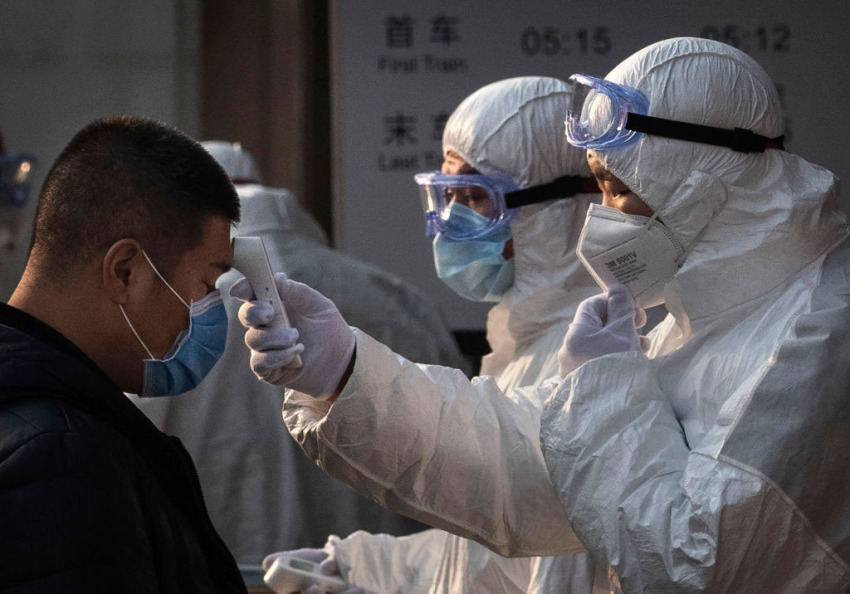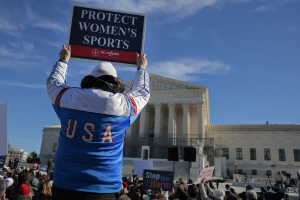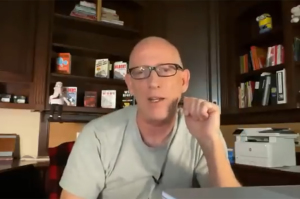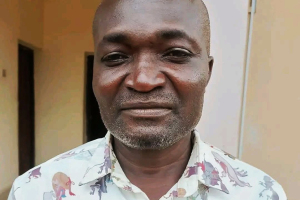China imposes strict lockdowns on city of 11M amid rise in COVID-19 infections

China has imposed a strict lockdown in Shijiazhuang, the largest metropolis in northern China’s Hebei Province, barring its 11 million residents from leaving the city after it reported 63 coronavirus infections.
On Thursday evening, the city’s Vice Mayor Meng Xianghong announced that all residents and vehicles will not be permitted to leave the city, according to The Epoch Times. Residents and vehicles of Gaocheng district, a heavily populated “high-risk” region, were further restricted and not allowed to leave the district's borders.
“Right now, Hebei faces a serious situation to get the pandemic under control and our responsibilities are heavy,” Ma Xiaowei, director of the National Health Commission, told a meeting with Hebei officials on Tuesday.
City officials had previously announced that a full lockdown would begin on Thursday but still allowed people to leave by plane, train, and private cars if they presented a negative nucleic acid test result that was issued within the past 72 hours.
The 63 infections announced on Wednesday prompted a top Chinese Centre for Disease Control and Prevention official to warn that infections will likely rise in the coming days.
On Tuesday, Beijing announced that if any passenger or their belongings were on the same flight as someone who tested positive for the coronavirus, the traveler must serve an extra seven days of quarantine on top of the 14 days required for all people arriving in the capital, according to the South China Morning Post.
Chinese authorities have announced few domestic infections since late March 2020. However, local citizens have reported severe outbreaks in different cities and regions throughout the past year.
Some residents told The Epoch Times that they had been locked down at home since Jan. 2.
“This disease is spreading very quickly,” said Lin Guo (pseudonym), a villager in Xiaoguozhuang of Gaocheng district. “Many of my fellow villagers felt sick and were diagnosed at hospitals,” he added.
China has been heavily criticized for its response to the coronavirus pandemic, from demonstrating a lack of transparency regarding positive infections to imposing overly harsh lockdowns.
China’s Communist Party has also repeatedly silenced whistleblowers — doctors and citizens — who sounded the alarm about the virus.
In December, Chinese Christian journalist Zhang Zhan was sentenced to four years in prison for her coverage of the coronavirus pandemic.
At the height of China’s outbreak in February, the 37-year-old citizen journalist and former lawyer had traveled from Shanghai to Wuhan to witness the severity of the virus firsthand. In addition to criticizing the CCP for its response to the virus, Zhan shared widely-circulated videos that showed crowded hospitals, empty streets, and citizens worried about their finances.
In her final video, Zhang stated, “The government’s way of managing this city has just been intimidation and threats. This is truly the tragedy of this country.”
After several months in detention, she was found guilty by Shanghai Pudong New Area People’s Court of “picking quarrels and provoking trouble.”
Zhang was the first citizen journalist known to face legal proceedings for her activities. Other citizen journalists who disappeared without explanation included Fang Bin, Chen Qiushi and Li Zehua.
Chen Jiangang, a Chinese human rights lawyer, told The New York Times that the length of Zhang’s sentence showed the CCP’s commitment to preserving its narrative of the outbreak.
“Any time the Chinese Communist Party thinks of a case as political, what they use is suppression. Extremely cruel suppression,” said Chen.
“What was Zhang Zhan’s crime?” he asked. “She just went to Wuhan, saw some things, talked about them. That’s it.”



























